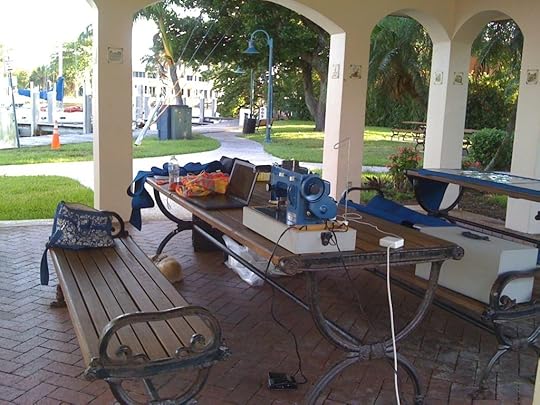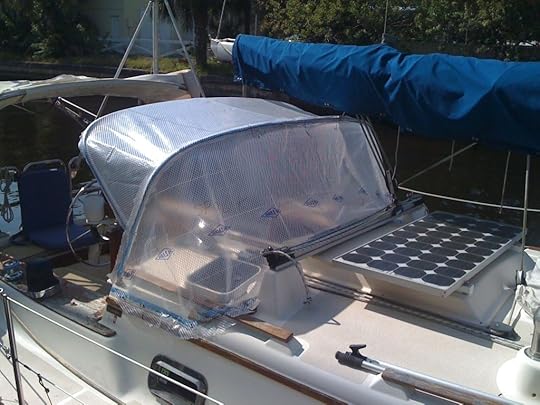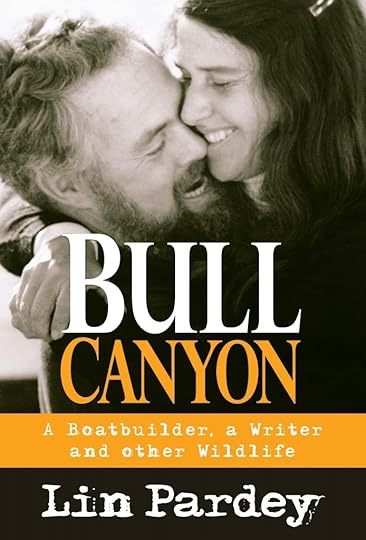Mike Jastrzebski's Blog, page 90
May 22, 2011
The problem with sharing a blog.
By Mike Jastrzebski
A little over a year ago I came up with the idea for this blog. I guess you could say the blog is a little like me, it has a split personality. We're a little bit for writers and a little bit for boaters. Before starting the blog I told some friends what I had in mind and one of those friends, Christine Kling, liked the title and the idea behind the blog and suggested that it would be a little easier with two people filling up five days a week of blogging rather than my doing it all by myself. I thought she had a great idea and so the two of us began blogging a couple of days a week. We soon added several other bloggers and now nobody has to write more than one blog a week. That's pretty cool, we keep fresh content up on the blog and we offer our readers a wide variety of writing styles and opinions. Perfect–right?
Almost. You see every once in awhile one of us steps on another's foot. That happened this weekend with Christine. On Friday she posted a beautiful blog about multitasking and how it has affected her work on her boat dodger. Therein lies the problem.
Today I planned on writing about my own problems with multitasking and about how I had turned the job of sewing our bimini over to my wife, Mary, because I couldn't spend part of the day doing boat work and then go inside and write. I even had a picture of the bimini frame with the patterning material up. (see below)
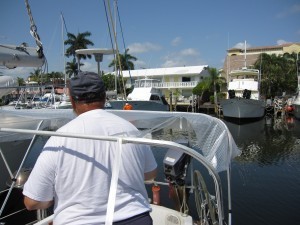
So much for my post, but I don't want you to get me wrong. I'm not complaining about Christine beating me to the punch (well maybe a little).
That's because this blog would not be what it is without Christine and the others who contribute their time energy and writing abilities. So rather than complaining about Christine, I want to thank her for her contributions to this blog and while I'm at it thanks also to Victoria Allman, John Urban, Michael Haskins, Tom Tripp, C.E. Grundler, Joyce Holland, Richard Jordan, and all of the wonderful guests who have contributed to this blog.
Mike
Share on Facebook
May 19, 2011
One Track Mind
I suck at multitasking.
You know what they say. Writers are supposed to write every day. Yeah, I know it, but I can never manage to do it. I get into the groove of doing one thing and that is all I can do.
Take my current project. I needed to make a new dodger and bimini for my boat. The big old bimini was mildewed and the stitching had all rotted away, so I figured I would replace it with a dodger and a bimini of my own design. Sounds easy, right? It did to me. At first. But now I find I am consumed by this sewing project. I get up, eat my breakfast in a hurry and dash out to unpack my stuff. Unlike a house, where one might have a sewing room, I do my sewing in the gazebo here at the marina. I stow the machine and the rolls of fabric and my rolling box of equipment in my car because that is easier than getting this fifty pounds of gear on and off the boat at high tide. Sometimes, I can barely get myself on and off the boat. And I sew. From morning until dusk, I am out there working on this thing. I thought it would get done this week and tomorrow is Friday, and I haven't even finished the dodger yet.
And for some reason, everyone from the marina security guard to the dog walkers to the local park rummy has to come over and chat with me. I want to yell, "Go away! Can't you see I need to run this machine?" You've heard the saying, no doubt, that some people can't walk and chew gum at the same time? I can't sew and talk at the same time. This thing is complicated and I'll make mistakes if I can't concentrate. I have a one track mind.
On Monday, I'm scheduled to haul my boat out and I will shift gears from sewing to sanding and painting the bottom. New project, new focus, new track for me to follow. At the end of the day I'm exhausted, and when I should be writing in the evenings all I want to do is fall into my bunk.
What I really need to do is finish the revisions on this book and get it out there, but that is not the track I am on right now, and I can't manage to do a little of this and a little of that. I envy people who can compartmentalize their days and set aside this time for that project and these hours for this. Not me. I have to finish this before I can start that.
And I have the additional pressure that I have to leave. In about two weeks, I want to be en route to the Bahamas. I need to get off the dock and stop paying these crazy slip rents now that I'm a retired pauper.
So for today, there is no lengthy, clever, heart-felt, insightful blog from me. That's not my track. Yeah, I quit my job, and yeah, I moved on my boat, but now I need to sew before I can write.
Fair winds!
Christine
Share on Facebook
In this world nothing can be said to be certain…
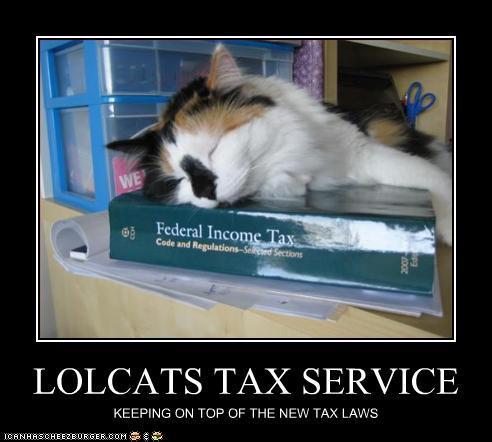
… except death and taxes. – Ben Franklin, 1789
I've always believed it's best to know and accept your limitations. Personally speaking, there's a reason I'm a writer and not an accountant. That sort of stuff doesn't sit well in my head; my brain prefers to focus on murder and mayhem. Ever since my job title changed from 9-5 office worker to full-time author, I've seen a steady increase in sales. And while I will admit I'm exceptionally pleased as my royalty earnings continue to rise, I realize this income brings with it a certain inescapable complication I must now acknowledge: income taxes. I don't even pretend to understand tax laws and forms, which is why annually I leave my taxes in the hands of more knowledgeable professionals. But at the same time I do understand that I've reached a point (likely I passed it a while back) where I must start tracking not only my income, but any and all potentially tax deductible expenses in a manner an accountant and the IRS will be able to decipher.
The task of keeping these records isn't what concerns me. Years ago I discovered the versatility of Excel, and believe me when I tell you, it's not just for CPAs. Excel can crunch just about any sort of data imaginable: I have spreadsheets for most everything I need to organize, and that includes my writing. Each book starts as an outline in an Excel spreadsheet. Key story events are tabbed into worksheets, and within those sheets, notes, word counts and hyperlinks to each chapter and research documents. I've tried various other systems but always wind up back at Excel. So it seems logical that I'll set up a ledger with a tab for each month, and use that to track my expenses and income. I've decided to set up a separate bank account with a dedicated credit card for expenses, and the monthly statements will help organize my records. I'll keep monthly file of receipts, as well as notes. That's the easy part: it's beyond there where the uncertainty starts.
As a self-employed writer, do I need to pay taxes quarterly, like a business, or do I classify my income the way I would any other job, and settle up next April? I'm working for myself, but am I supposed to do it as a sole proprietorship, a corporation or something else entirely. I know Amazon provides year-end tax information. But what about any royalties I earn for sales outside this country? And what about deductions? The costs of writing, from pencils to research and printer cartridges come straight from my pocket. While I know I won't recover 100% of what I spend, claiming these expenses against my earnings to whatever degree the IRS will allow saves me money and keep more of what I've worked to earn in my pocket in the end.
This brings me to my next question: What expenses can I claim, and how? Some expenses seem fairly straightforward and indisputable, such as is buying an ISBN, purchasing printed copies and shipping them to various reviewers for promotional purposes. If I purchase a new computer just for research and writing I know I can write that off, though as I understand it, that write-off must be 'depreciated' over the coming years I expect to use it. How does that work? And what about that GPS I bought specifically so I can travel for research and to visit bookstores in areas where I feel my book would sell well… is that deductible? How do I divide up my internet expenses, as my provider is bundled with my household TV and phone? What are the guidelines for using my home and car for business? I've done a fund-raiser for the New Jersey SPCA: I raised and donated $400. How do I handle that?
I hate when anything takes away from my writing time, and that includes distracting thoughts and research that doesn't involve how to blow things up. This whole tax thing has become one of those distractions, and ignoring it won't make it go away. I've looked online (not always the most reliable source of answers) only to find myself even more confused. Over the weekend I checked the library, figuring I might find some reference touching upon this topic. The books on accounting and small business finance offered more questions than answers. They dealt this incorporating, franchises and entrepreneurs, but nothing seemed to resemble my situation. I headed over to the books for writers, hoping I'd have better luck there. Shelves upon shelves of books promised to help me write a novel, build suspense, create a blockbuster plot or breakout best-seller, write the perfect query letter and even land that dream agent, but not one considered the possibility that I'd completed a book, it was actually selling quite nicely, and now I simply wanted to understand the best way to manage the resulting income.
So, my fellow writers, or anyone else out knowledgeable in matters of taxes, expenses, deductions and all other things IRS-related, what's your advice? Where do I start to figure this out so I can go back to thinking happier thoughts, like torturing and interrogation methods. Is there a 'Tax Guide For Idiots Who Quit Their Jobs To Move On Board A Boat And Write'?
Share on Facebook
May 17, 2011
From Blog to Book 1: A Small Step Forward
I try to set my goals low enough that I cannot help exceed them. I have a lot more fun this way and always feel good about the results. Forget about sales and prices. My current writing goal is to go through the motions and just get an e-book out there; that appears to be a hard enough task for me. Of course I have to do everything the difficult way.
I write a company blog called Waves for my family's firm and have composed quite a few yachting articles (143 at last count) over the last 2 1/2 years. Because of the excellent discussions here, I have been inspired to create a "Best Of" selection of my 2010 articles. Even though I know no one will ever read my book, I still am anxious to get through the process. I consider publishing an e-book a worthwhile learning experience.
After a month of procrastination, I received an email from Mike about writing a blog post for today, the 18th. That finally spurred me on to take some real steps towards getting out an e-book. I searched and found the Kindle Self-Publishing site ( https://kdp.amazon.com/self-publishing/signin ) which probably is familiar to many of you out there. The instructions seemed pretty straight forward, and, as far as I can tell so far, there are no fees to submit a book? Though there is a curious royalty choice that in a future post I will touch on.
Everything was straight forward until I got to the part about actually uploading my book. My content is in a funny format as I usually write out by hand my notes and then type them up directly into WordPress, the software suite that powers my blog. Kindle's recommended way to format your book is to compose the content in Microsoft Word and then save in web format. Then there is a program called MobiCreator ( http://www.mobipocket.com/en/downloadsoft/productdetailscreator.asp ) that converts the web page into a .mobi file which is accepted by Kindle.
I have a bachelors degree in Computer Engineering, so I thought maybe I can do this in a more convenient way? I dreaded converting whatever 20 or so best blog posts and putting them in Word. It seems like a common enough idea to convert a selection of your WordPress posts into a format suitable to publish as an e-book. I looked through the WordPress plugins online and stumbled on Anthologize ( http://anthologize.org ). It seems like the perfect solution, but unfortunately it is not finished yet and does not work.
So here I am procrastinating again about what to do. I wonder what program(s) others use who have published e-books through Kindle. Do you use Word and MobiCreator as Kindle recommends? What do you recommend as tools for e-publishing?
I cannot set my goals any lower, so I am stuck here. It looks like I have to man up and actually put in some time and thought into figuring the best way to go from WordPress blog to Kindle book.
Share on Facebook
May 16, 2011
When the Ocean Motion Blocks Your Writing
by Tom Tripp
Motion sickness, to quote Dr. Patricia S. Cowings, of NASA's Ames Research Center, "won't kill you — you just wish it would." She and a colleague have discovered that a regimen of biofeedback training is more effective than even the powerful anti-nausea drugs given to NASA astronauts — some 50 percent of whom suffer from airsickness during spaceflight. An MSNBC blog piece by Chris Tachibana cites the publication of this new research by Cowings and Dr. William B. Toscano in the Journal of Clinical Pharmacology.

Baroque Depiction of "Seasickness" by Giorgio Bonola, Image from Wikipedia Commons
Motion sickness has been a serious concern for NASA for a long time. The debilitating affliction can compromise the potential accomplishments of a spaceflight that is on a strict timeline with no allowance for downtime or sudden crew shortages. But I guess it should all make us feel better that half of all the people with The Right Stuff still get "seasick."
The biofeedback technique discovered by Cowings and Toscano involves learning to control heart rate and sweating, principally using breathing techniques combined with high-tech biofeedback. It's more than just relaxation, the techniques actually lower heart rates and diminish sweating, which have the effect of stopping nausea.
The scientists compared results of their Autogenic-Feedback Training Exercise (AFTE) with the standard NASA treatment of an injection of promethazine (Phenergan), and with a control group that had no training or treatment. The AFTE group had dramatically better results than the group that had even the highest doses of promethazine.
Until AFTE is available publicly, the recommendation from the study's scientists is to focus on steadying your breathing, using two-second intervals for inhalations and exhalations. I can attest to the efficacy of this. On a recent offshore passage, we were beaten up rather stiffly by a confused quartering sea with a short period and every time I went below decks I had to race back topside and do some deep-breathing exercises while focusing on the horizon. Eventually I got used to the seas, as most people do, and I never actually fed the fishes, but I know there's something to this new research. I was trying to write up my review of the boat I was delivering while all this was going on and until my brain, my eyes, my inner ear and my stomach got back into agreement, I couldn't write a word.
So there's hope for those who suffer from seasickness and it might be coming soon. In the meantime, suck on some crystallized ginger and do your breathing!!
Share on Facebook
May 15, 2011
My thoughts on the iPad vs. the Kindle
It's been nearly a year since Christine blogged about her love affair with her iPad and gave her opinion about which of these two devices was a better buy for a cruiser.
I've now owned my iPad for about two months and I've taken it around the block a few times so I'd like to give my opinion on the battle between the iPad and the Kindle.
Let me preface this by saying that I love my iPad, in fact I'm writing this post on the iPad, and it does exactly what I wanted it to do, which is act as a backup computer. This way if my laptop goes down I can use the iPad for writing and research. It also allows Mary, who does my editing to research questions she might have while I'm using the laptop.
It's also great for games. I've also downloaded a few boating apps but I haven't had time to play with them. I have to take Christine's word for how well they work and since she is a fine researcher I know her facts about the apps are spot on.
Where I have to differ with her is that in her original post she said she believes the iPad is a better reading device. I agree that it's great for newspapers and magazines, but in my opinion not for books and books are what I want a reader for.
The iPad is a little too big and a little too bulky. I like the feel of the Kindle. I prefer the Amazon store and although I can still read my Amazon books on the iPad, I find it easier to read on the Kindle with its e-ink technology. When I read on the iPad for too long the screen makes me tired. I also like the fact that I can go weeks without recharging my Kindle while the iPad has to be recharged every ten hours or so of use.
So if someone were to force me to get rid of either my iPad or my Kindle, I'd bitch and I'd moan, but in the long run I'd give up the iPad. I can do everything I do on the iPad on my laptop, including reading my Kindle books if I wanted to, but it's not a reading device. I don't think I could ever give up my Kindle. In fact, if my Kindle broke tomorrow I'd buy a new one that day, but due to its cost that's not necessarily true with my iPad.
Written on my iPad
Mike
Share on Facebook
May 12, 2011
An interview with sailor and writer, Lin Pardey
Today's guest here at Write on the Water, is one of the most well known and prolific sailing writers. The Pardey's book Cruising in Seraffyn has probably launched more dreamers into the cruising life than any other book. For those of you who might be new to sailing, check out Lin's bio:
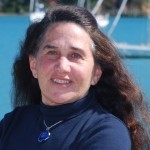 Lin Pardey is the author of eleven books. She and her husband Larry have sailed more than 200,000 miles and received some of sailing's most prestigious awards. The Pardeys have also created several instructional videos on offshore voyaging. They make New Zealand their home base, but spend part of each year cruising on board their engine-free 29-foot sailboat Taleisin. Visit Lin Pardey online at: www.linpardey.com.
Lin Pardey is the author of eleven books. She and her husband Larry have sailed more than 200,000 miles and received some of sailing's most prestigious awards. The Pardeys have also created several instructional videos on offshore voyaging. They make New Zealand their home base, but spend part of each year cruising on board their engine-free 29-foot sailboat Taleisin. Visit Lin Pardey online at: www.linpardey.com.
Lin's latest book, Bull Canyon, a Boatbuilder, a Writer and other Wildlife is already getting rave reviews like this one from PW:
Soon after meeting, Lin and Larry Pardey (The Cost Conscious Cruiser), two free and kindred spirits, set sale in "Seraffyn" from California, ultimately spending 11 years traversing the globe, writing articles about sailing to supplement their income. Back in southern California, their lives took a dramatic turn when they decided to take root in dry, brush-filled Bull Canyon, in a region prone to wild fires, and build a new boat–out of very flammable wood. With a cat named "Dog" to help manage their rat problem and a dog named "Cindy" running security, the Pardeys spent three years building the 29-foot sailboat, Taleisin, selling off Seraffyn, which had taken them around the world, to buy time. But Lin immediately felt cheated; was $40,000 "enough to compensate for the freedom I'd given up?" This idea of freedom vs. security is like fuel for Bull Canyon; it practically runs on it. (June) – PUBLISHERS WEEKLY
I actually met Lin over 30 years ago and when this opportunity to interview her came up, I wanted to share with her the unique way our courses had crossed once before.
CHRISTINE: Lin, by way of introduction, I'd like to tell you about the first time you and I met. I think it's interesting because it happened while you were living the events from Bull Canyon.
My (then) husband Jim Kling and I were building a boat up in Oxnard in 1979 after a couple of years of cruising the South Pacific. I think I was about 25 years old. I was working in the little bookstore in Ventura Marina called the Island Hunter Bookstore. I'd sold a few articles to the sailing magazines, and I had big dreams of writing a book. I wanted to put together a proposal for a book on Cruising Women and you graciously agreed to be interviewed. I drove down with Karen from the bookstore, and we met you in the upstairs apartment of a home where you were staying in Newport Beach.
You were my idol and I was terrified. Karen asked nearly all the questions because I was tongue-tied. I madly scribbled notes. Afterwards, Karen and I went sailing on Newport Bay in a lovely little wooden open boat that your friends graciously offered to us. Although I was not able to sell that non-fiction book proposal, I never forgot that afternoon, nor your kindness with this beginning writer. So now, some 30 years later, let me ask you a few questions once again.
First off, the tag line for this blog is "So you want to quit your job, move onto a boat, and write." When did that become your dream? Could you tell us the story of your first attempts at writing and how you finally broke in to the marine magazine market?
LIN: We were weather bound in Panama. I picked up a ragged yachting magazine (Boating Magazine from early 1970). In it was an article called, The Perfect Cruising Yacht. The author said, "Though a few Spartan souls have gone in boats as small as 30 feet, the perfect yacht is 57 feet long." We had just spent the previous two years having a grand time on 24'4" Seraffyn. Half the yachts at anchor around us (there were about 11) were less than 30 feet. I wrote a strongly worded letter to the editor. Three weeks later a telegram arrived saying simply, "prove it." Larry suggested I do a survey of folks who had been cruising at least two years. Six months later I wrote about what I'd learned. That first article sold to seven different magazines in five different countries and became the basis for our first book. After that first article, it all seemed to flow like honey.
Larry feels several things made our sailing stories and articles successful; we were having a lot of fun and it showed, our boat looked good in photographs, with Larry's technical knowledge and my romantic streak the stories appealed to both women and men, almost anyone could imagine someday owning 24 foot boat so our message was quite popular.
CHRISTINE: If you don't mind sharing the information, through all your years of cruising, what percentage of your income has been from writing as opposed to all your other business ventures? Has writing been your major form of support?
LIN: We cruised on income from delivering boats, doing woodwork and rigging along the way for the first three years. Writing only added a small portion of our income for the next year or two. But after five years of cruising we found writing provided about half our income. Now, 40 years after that first article, writing probably provides 65% to 70% of our income.
CHRISTINE: People often ask us cruisers how we can live in such small spaces, and we all know it's even more difficult to write in a tight space. Could you tell us a little about how you manage to concentrate, whether you now use a computer, and what your average writing day is like when you are aboard Taleisin?
LIN: I currently have a lovely office at our home base in New Zealand, with computer, printer etc. I find it harder to write than I did while we were actively cruising (about half our books and articles were written right on the boat, others while we spent winters on shore. Two were written right here.) But when we were cruising we set aside three months a year for solid working time which usually coincided with haulout and refit time. Every morning I settled in for four hours of creative work. Larry either had jobs off the boat, or worked opposite me doing editing or writing himself. Afternoons I'd work on the business of writing – i.e. getting photos organized, typing clean manuscripts. Late afternoons I did up the varnish work or sail repairs on the boat. The rest of the year as we cruised actively, I did a lot of writing on night watches, on rainy days in port. Then I'd settle in a few mornings a week to type up and edit manuscripts.
CHRISTINE: Most of your books (except for The Care and Feeding of Sailing Crew) carry the byline Lin and Larry Pardey. Can you tell us more about how that collaboration has worked?
LIN: I'd usually write the narratives; Larry often took on the how-to articles. (We sometimes joked, I told the stories and Larry told the truth.) Right from the first story we sold, Larry and I spent hours discussing the ideas before the writing began. So by the time it was all on paper it was often hard to remember exactly whose words we actually used. Larry's book Details of – Classic Boat construction – was different. Though I did a lot of the editing to make sure explanations would be clear to less skilled readers, the words that fill that book are definitely Larry's. The same is true of Care and Feeding but in reverse.
 CHRISTINE: The new book Bull Canyon: A Boatbuilder, a Writer and other Wildlife carries only your byline for the first time. This book is a real departure for you, isn't it? Can you tell us about its genesis?
CHRISTINE: The new book Bull Canyon: A Boatbuilder, a Writer and other Wildlife carries only your byline for the first time. This book is a real departure for you, isn't it? Can you tell us about its genesis?
LIN: For the first time ever, Larry only learned what I was writing when I handed him the first draft of each chapter This was definitely a departure for us and in fact caused a few moments of friction. Where in the past I'd gladly take on his comments such as, "Why don't you tell them this story" or "Isn't that getting a bit personal?" for Bull Canyon I felt it important to tell only my story and I feel Larry was at first a bit hurt by this. But gradually, as the book matured through four re-writes and as he edited each new one, he became ever more enthusiastic about my being in complete control of the story. His encouragement was wonderful and kept me going into that fourth re-write (and even more important through the painful wait for the first reviews.)
CHRISTINE: Bull Canyon has been compared to memoirs such as Under the Tuscan Sun that tell the story both of a romance and relationship and the blooming of an author's narrative power. Is your memoir one or the other or both?
LIN: About 30 years ago, friends watched Larry and I working together, resolving differences, solving problems and said, "You guys should write a book about relationships." We laughed and agreed, if we tried to dissect our relationship and see what made it work, we might ruin it. Besides, at that time who knew if it was going to last – even if we definitely wanted it too? In a way, now that we can look back at a fine romance of 45 years, Bull Canyon is that book, a gentle look at the inner workings of a relationship that has helped us both enjoy life together. I hope readers also find my narrative skills have grown. Larry sure thinks they have!
CHRISTINE: There are some laugh-out -loud stories in this book. Do you have any favorites?
LIN: They are all my favorites. I just wish I'd been able to find room for the dozens of other very funny incidents that seemed to occur in Bull Canyon. But the one that makes tears come into my eyes every time I think of it is definitely seeing Larry rushing through the night, nude except for a pair of shoes, armed with a shovel and flashlight in his attempt to rescue Dog (our cat) from a wild cougar.
CHRISTINE: When it comes to sailing fiction and memoir who are some of your favorite authors? And since all or most of your books are available for the Kindle, have you crossed over into the world of e-readers yet?
LIN: My absolute favorite memoir still has to be Don't Lets Go to the Dogs Tonight by Alexandra Fuller. I also really enjoyed Beryl Markham's West with the Night. Sailing memoir-wise, nothing beats a very old but very readable book, The Cruise of the Cachalot by Frank Bullen written in 1897, reprinted 29 times and still in print today. My favorite sailing fiction definitely has to be any of C.S. Foresters books. Though I read his Hornblower series time and again, it was his Daughter of the Hawk I loved best. Then there are the Jan De Hartog books; Call of the Sea, The Captain.
As for e-readers, I use a computer for work, not sure I want to use one for pleasure. I like to have a pile of books next to my bunk, lining my shelves all waiting to fill my time. I like to pass them around to my friends – leave them laying open at a page in the bathroom for a short sneak, discover something that would be fun to read left behind in on the trading shelf at the marina laundry. So I am not ready to rush out and buy a reader though I did use Kindle for PC to download Dan Poynter's Self Publishing Manual.
CHRISTINE: What's up next in your career as a writer? Are you working on a new book? Is Bull Canyon really going to be the start of more of Taleisin's Tales?
LIN: With the warm and wonderful response I am getting from Bull Canyon, both among sailing and non-sailing readers, I am eager to get going on Taleisin's Tales. But first I have to get ready for seminars at the Newport Boatshow, and the Annapolis show in September/October plus of course, help with the promotion of Bull Canyon.
CHRISTINE: Thank you so much for joining us here at Write on the Water and we wish you continued success with Bull Canyon. I want to let our readers know they can buy Bull Canyon on Amazon or Fort Lauderdale locals can stop by Bluewater Books and Charts.
LIN: Christine, I took a look at your website and when I saw your photo I did remember meeting you. You came with Karen. I really liked her book store. Fun connections. A big congratulations to you on your writing success. Four novels!! Wow, can't wait to read the first. Sounds like good fun. Hope we meet up again some day.
CHRISTINE: I hope so, too. We both know the world of cruising folk is a small one, so until our courses cross again,
Fair winds!
Christine
Share on Facebook
Recalculating!

I finally broke down the other day and bought a GPS for the car. For anyone who doesn't already have one of these delightful devices, (I think I was one of the last hold-outs,) they can, quite simply, get you anywhere you'd like to be by either the fastest, easiest or most scenic routes. They can find you the nearest supermarket when you're hours from home, direct you to hidden boatyards, and even take you places right around the corner that you didn't know existed. If only I could program in marketing goals and have that neutral computer generated voice guide me along.
I've kept a pretty low profile, writing-wise. I'm not part of any writing groups. I'm sure they're out there, but I really haven't looked. The only one I ever stumbled across, and briefly attended, was comprised of several ladies sharing their in-progress historical romances. They had no idea what to make of my hard-boiled plot and bad-attitude heroine, so obtaining constructive criticism was difficult. When I'm talking to someone and I'm asked what I do, I will admit I'm a writer but even then I tend to steer the conversation back to questions about them. I'm a bit of an introvert. I prefer to listen rather than talk. Most people love to talk about themselves, but I'm not one of them. I know me – I'm a woman, I'm a writer, I own an old boat. It's no big deal. I'd much rather learn about others.
But I've reached a point where I realize to move forward that must change. Not only do I need to talk about myself, but I need to seek out avenues in which to talk. If I plan to take my marketing up a notch, it's time to seek out the media. Online, papers, radio, TV. It's time to step outside my comfort-zone of quiet anonymity.
I have a nautical thriller with a distinctly un-nautical title and cover, and that, I suspect, leaves some confusion when it pops up in Amazon under the boating and sailing categories. But I'm hoping that very same title and cover will give me an edge when it comes to getting the local media attention. I've written up a press release that plays on both aspects, and starting today I'll be sending that out to every regional media outlet possible. And not only do I have to market my writing, but myself as well. That's going to be the tricky part. I don't find myself that interesting, though I am aware that to the general population, a petite, trawler-owning, former commercial truck-driving woman from New Jersey who writes regional nautical thrillers IS interesting. Or maybe just a bit weird, but either way it seems to intrigue people, and I realize if I'd like to gain a wider audience perhaps it's time to embrace that aspect.
So, for my fellow writers/boaters who have already taken this voyage, what were your experiences, and what advice or suggestions can you offer to someone about to seek out the spotlight? I don't have paper charts for these waters and I can't figure out what buttons to push on my GPS!
Share on Facebook
May 10, 2011
Myers-Briggs for Wooden Boats
This coming Friday, Christine Kling's post will contain an interview with the internationally acclaimed writer and sailor Lin Pardey. As a wooden boat owner, it's not lost on me that Lin and her husband have logged more than 185,000 miles circumnavigating the globe in a wooden boat – a 30-foot wooden boat at that. If you check-in on Friday, you will get a better sense of this remarkable couple. But for now, let's diverge slightly onto the subject of wooden boats.
Recently, I was asked to complete a Myers-Briggs test as part of a team building and management exercise. While my results aren't yet in, this undertaking sparked an interest in developing a similar exam, one designed to give people a better sense of their boating personality. Specifically, I am interested in helping people establish whether or not they might be inclined to join the ranks of wooden boat owners. My purpose is two-fold: 1) an honest effort to assist my fellow boater, and 2) an underhanded plan to expand the market for wooden boats beyond those of us who are presently burdened with them.
I am still refining the exam, but here are some sample questions for you:
1. I prefer to store my vessel in the far corner of the boatyard so that:
a. I can see that beautiful wooden hull as soon as I drive through the gate
b. I don't get in the way of other boats that are actually launched and hauled each year
c. I don't have to run long extension cords to my sanders, heat guns, and night lights
d. the fire marshall doesn't confuse my craft for a wood pile
2. A dry bilge is defined as:
a. the sign of good, proper maintenance
b. pumps that work really, really well
c. the boat 10 days after end-of-year hauling
d. someone else's boat
3. A spring launch date means:
a. you've checked off every repair task over the winter
b. the boat gets into the water by August 1st
c. you are going to splash the hull, run the pumps for 48 hours before you haul it again and re-caulk
d. you've paid the boatyard ungodly sums for work conducted over the winter
4. Fiberglass boats:
a. are another man's vision
b. are owned by people who would rather sail than sand
c. are the ones your insurer wants you to own
d. were invented by someone who owned one too many wooden boats
Like the Myers-Briggs test, there are no right answers to these questions, it is simply a matter of preference. However, I am working on my answer grid and I suspect that I'll be able to unearth some would-be wooden boat owners. Who knows, maybe you will be the one who some day buys a wooden boat. Maybe even my wooden boat.
Perhaps you'll even write a book, quit your job, and meet Lin and Larry Pardey in some far away harbor. Then again maybe I'll keep my wooden boat.
————————————————-
Just released – Urban Shorts
Share on Facebook
A lie is a lie is . . .
Michael Haskins
possibly a good story . . . listener beware
I left Houston on Easter Sunday, and friends from Texas, who now live in Key West, told me I'd never get out of the state before night. Well, I drove one thousand miles on Sunday and not only got out of Texas, but almost made it into Arizona.
I stopped in New Mexico so I could find my passport, after all, Arizona really only wants American citizens in the state. I headed west Monday morning and soon as I saw the sign indicating Arizona was a few miles away, I got nervous. Why? I couldn't find my passport!
At the border, a large crew cut, neck-less man in an ugly, form fitting brown uniform approached. His large holstered gun very noticeable. His nametag had Jim Lord, A.S.S. on it.
"Passport, please," he said and maybe smiled, but it was a thin, tight one if it was a smile.
I explained about being a citizen but without a passport.
"Identification, please," he almost smiled, again.
I gave him my Florida driver's license and he grunted, "Key West."
"Yes," I answered and tried not to look nervous.
"Any other form of identification with a photo?" he said sternly without even an attempted smile.
My next piece of ID was the Florida concealed weapons permit I earned after attending classes held by a SWAT member of the Monroe County Sheriff's office. I hand it to Lord.
He looked at the photo, looked at me, back at the photo, and grinned.
"Well," he said in a friendly tone, "they only give these to citizens, so you're okay to go." He handed my permit and license back to me. "Welcome to Arizona."
Thank you. I had bite my tongue and was afraid to ask what A.S.S. stood for, but now that we were friends . . .
"Do you have a weapon in the car?"
Was this going to get sticky? Arizona honors the Florida concealed weapons permit, so I was allowed to carry a weapons.
"Yes," I answered, getting nervous again.
He smiled. "You might be interested in our hunting permit," he said, the smile back and didn't ask to see the weapon. I guess if you've seen one, you've seen them all. "You can buy the permit and it allows you a limit of four."
"Four what?" I asked.
"Illegals," he smiled. "We had to put a limit on how many you can shoot," he explained with a smile. "We've got individual, limit of four, couples, limit of two, families, limit of one."
I thought he was kidding, then I got a feeling maybe I was wrong.
"What's a permit cost?"
"Which one?"
"Individual."
"One hundred, and it's good for the day."
"I'm just driving through," I said. "Hope to be at my sister's in California by night fall."
"Maybe on your way back," he suggested.
"I have a question for you."
"That's what I'm here for."
Why'd he need the gun for questions? I didn't ask. In stead, "How would I know an illegal from a citizen?"
"Oh, that's easy," he grinned broadly, "they ain't the same color as us."
"Aren't some people of color legal?"
"The permit allows for error," he said. "An honest mistake is an accident and accidents happen. But the easiest thing is to stick close to the border and anyone running north is probably an illegal."
"I'll have to remember that," I forced a smile. "What agency are you with?"
"We're members of a volunteer agency, Arizona Security Squad, we protect our borders."
"And you are doing a hell of a job," I said and drove off.
One of the many biographers of Ernest Hemingway was at a luncheon with men and women who knew the author. He brought up that in his research into Hemingway's life he found many conflicting facts. Most of the other guests laughed and that only added to the man's confusion.
Someone finally stepped forward and took the man aside.
The stranger explained that Hemingway made his living writing fiction, making up things and told the biographer that the trait carried over into his life as well. Writers, he said, make things up, and to assume anything a writer told you was the truth was a wrong assumption.
I write mysteries about Key West and am on a road trip to sign my new book, Free Range Institution. I have signed in Houston, the LA Times Festival of Books, and three LA area bookstores. I am as guilty as Hemingway. I will try a story idea out by talking to friends who may think it's the truth. I write mystery fiction, maybe I talk it to.
Share on Facebook

